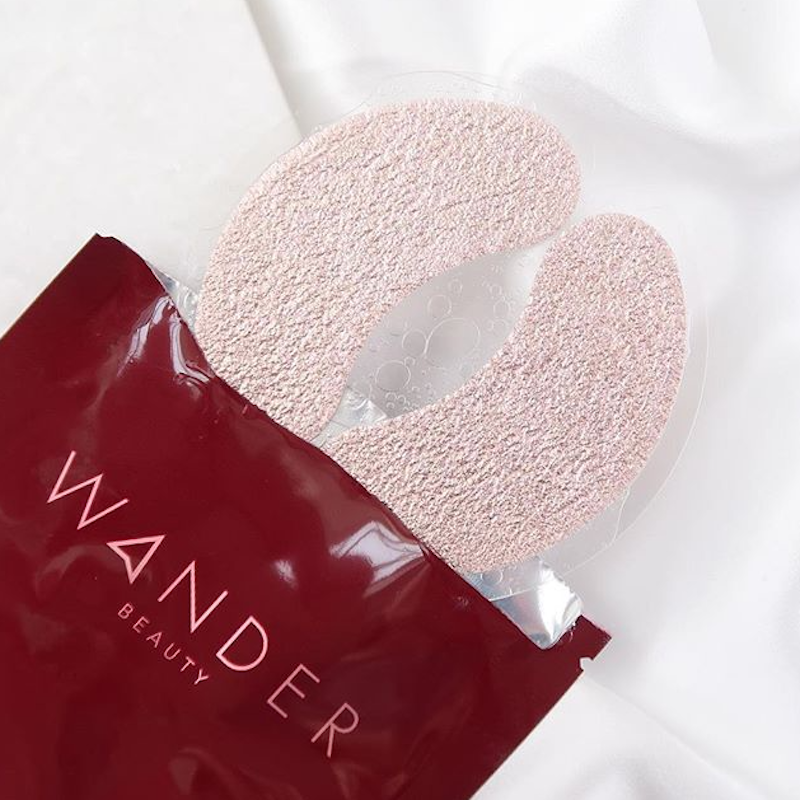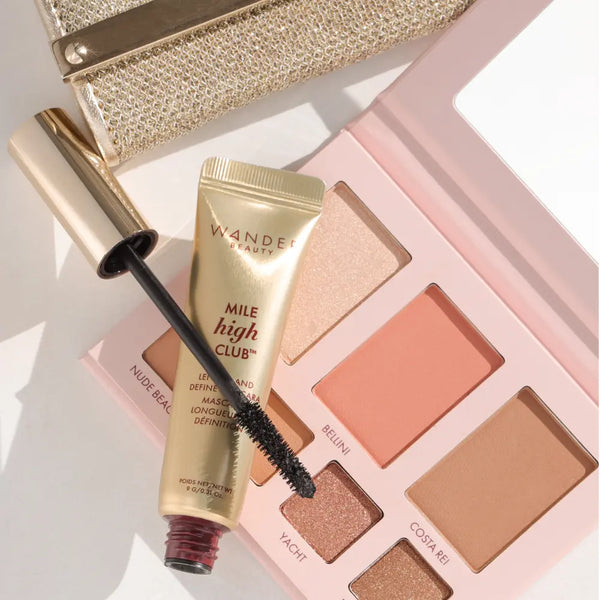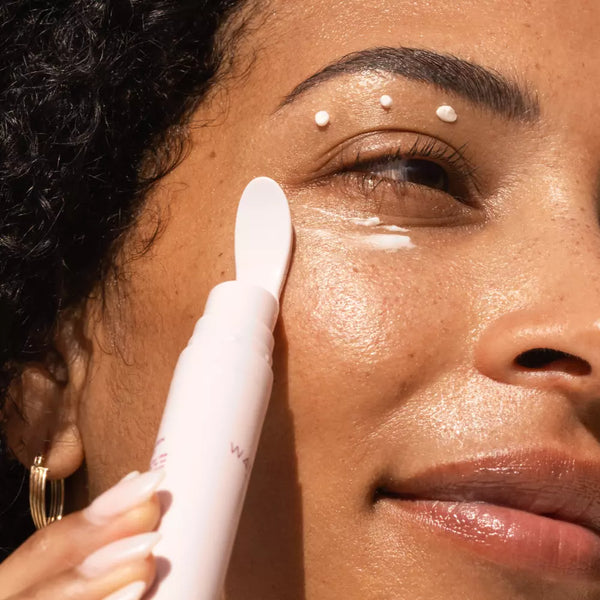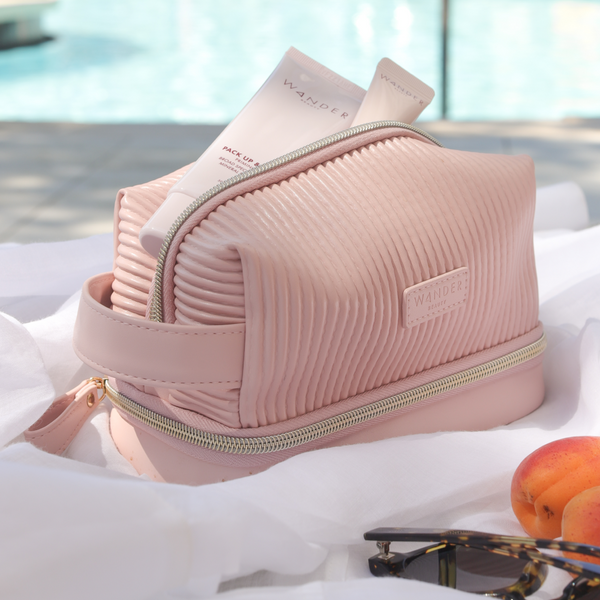What Is Blue Light and How Does It Affect Your Skin?
By Max Brockbank | May 06, 2020
Is staying indoors all day giving you a case of the blue light blues? You’re not alone. As many of us continue to shelter in place, our screen time has increased astronomically. Many of our personal and professional interactions are now happening via video conference, and not to mention the increased hours we’re spending on our devices to fight boredom. So is blue light bad for you? Keep reading to find out!
WHAT IS BLUE LIGHT?
Blue light, also called high-energy visible light or HEV light, is a high-energy short-wavelength light part of the visible light spectrum.
HOW DOES BLUE LIGHT AFFECT OUR BODIES?
It’s first important to remember that like many things, blue light in moderation can actually benefit the body. The largest source of blue light is the sun. It helps to regulate the body’s circadian rhythm, elevate mood, and boost alertness.
Overexposure to blue light and lack of protection is where problems start to arise. As researchers continue to study blue light, growing evidence shows that it can negatively affect the skin in several ways.
Blue light induces oxidative stress to the skin which stimulates the production of free radicals. This can lead to the acceleration of aging, including wrinkles, fine lines, and loss of skin elasticity. Blue light has also been shown to cause redness, swelling, and hyperpigmentation.
Nighttime blue light exposure can disrupt the body’s usual sleeping patterns, leaving your skin vulnerable to premature aging. We all know how this goes - you hop into bed early and yet somehow don’t end up sleeping until the wee hours of the morning. You’ve fallen down the Instagram rabbit hole or sneak in just one more episode of your latest Netflix binge. The blue light tricks the body into thinking it’s still daytime instead of shutting down for the night. The resulting lack of sleep has adverse effects on skin as sleep is an important time for skin repair and regeneration.
The eyes and the delicate surrounding skin can be particularly sensitive to blue light. We tend to blink less while looking at screens which can dry out the eyes. Constant screen time can strain the eyes and fatigue the muscles in the area. This can lead to headaches, blurred vision, and even difficulty focusing.
SO WHAT CAN WE DO TO PROTECT AGAINST BLUE LIGHT?
Sunscreen is a must! Though both types (physical/mineral and chemical) protect against UVA and UVB rays, only physical/mineral sunscreens provide protection from visible light.
Pop on a pair of Baggage Claim Eye Masks to combat dark circles from lack of sleep and soothe strained and fatigued muscles in the eye area. Aloe leaf extract de-puffs the under eyes while Camu Camu extract helps brighten skin and hyaluronic acid diminishes the appearance of fine lines and wrinkles.<product>1</product>
Change your device settings. Some smartphones and laptops have a “night mode” setting that reduces the blue light emitted in favor of a warmer yellow light. If your devices don’t have this option, try covering them with a blue light filter.
How are you combatting blue light? Let us know @Wander_Beauty!
What Is Blue Light and How Does It Affect Your Skin?

Is staying indoors all day giving you a case of the blue light blues? You’re not alone. As many of us continue to shelter in place, our screen time has increased astronomically. Many of our personal and professional interactions are now happening via video conference, and not to mention the increased hours we’re spending on our devices to fight boredom. So is blue light bad for you? Keep reading to find out!
WHAT IS BLUE LIGHT?
Blue light, also called high-energy visible light or HEV light, is a high-energy short-wavelength light part of the visible light spectrum.
HOW DOES BLUE LIGHT AFFECT OUR BODIES?
It’s first important to remember that like many things, blue light in moderation can actually benefit the body. The largest source of blue light is the sun. It helps to regulate the body’s circadian rhythm, elevate mood, and boost alertness.
Overexposure to blue light and lack of protection is where problems start to arise. As researchers continue to study blue light, growing evidence shows that it can negatively affect the skin in several ways.
Blue light induces oxidative stress to the skin which stimulates the production of free radicals. This can lead to the acceleration of aging, including wrinkles, fine lines, and loss of skin elasticity. Blue light has also been shown to cause redness, swelling, and hyperpigmentation.
Nighttime blue light exposure can disrupt the body’s usual sleeping patterns, leaving your skin vulnerable to premature aging. We all know how this goes - you hop into bed early and yet somehow don’t end up sleeping until the wee hours of the morning. You’ve fallen down the Instagram rabbit hole or sneak in just one more episode of your latest Netflix binge. The blue light tricks the body into thinking it’s still daytime instead of shutting down for the night. The resulting lack of sleep has adverse effects on skin as sleep is an important time for skin repair and regeneration.
The eyes and the delicate surrounding skin can be particularly sensitive to blue light. We tend to blink less while looking at screens which can dry out the eyes. Constant screen time can strain the eyes and fatigue the muscles in the area. This can lead to headaches, blurred vision, and even difficulty focusing.
SO WHAT CAN WE DO TO PROTECT AGAINST BLUE LIGHT?
Sunscreen is a must! Though both types (physical/mineral and chemical) protect against UVA and UVB rays, only physical/mineral sunscreens provide protection from visible light.
Pop on a pair of Baggage Claim Eye Masks to combat dark circles from lack of sleep and soothe strained and fatigued muscles in the eye area. Aloe leaf extract de-puffs the under eyes while Camu Camu extract helps brighten skin and hyaluronic acid diminishes the appearance of fine lines and wrinkles.<product>1</product>
Change your device settings. Some smartphones and laptops have a “night mode” setting that reduces the blue light emitted in favor of a warmer yellow light. If your devices don’t have this option, try covering them with a blue light filter.
How are you combatting blue light? Let us know @Wander_Beauty!









